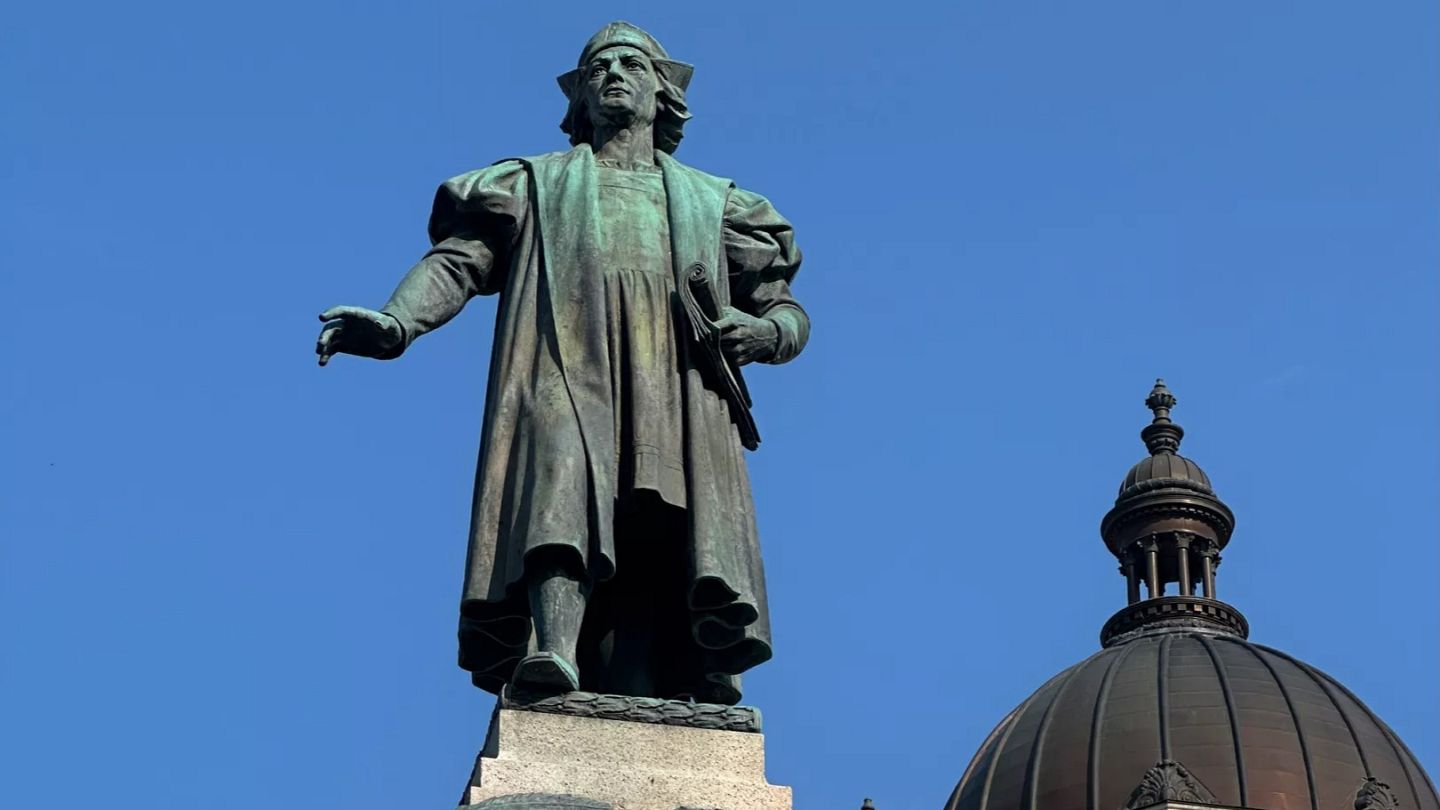'America's original hero': Trump sparks anger by making Columbus Day an Italian-American celebration
The US president has reinstated Columbus Day as a national holiday to honour the explorer's legacy but the move has also reignited the debate about the origins of Columbus and the importance of Indigenous Peoples' Day.
US President Donald Trump has issued an official proclamation to reinstate Columbus Day, which falls on Monday, as a national holiday across the country, presenting it as a tribute to" America's original hero" and the contributions of the Italian-American community.The decision marks a cultural and political shift in a country where, in recent years, many states and cities had replaced this date with Indigenous Peoples' Day in recognition of native populations affected by the arrival of Europeans on the continent.The proclamation, signed on 9 October, describes Christopher Columbus as a "giant of Western civilisation" and accuses "left-wing radicals" of trying to erase his figure from public space by removing statues and changing the name of this bank holidays .Trump urges "reclaiming his legacy of faith, courage and perseverance", omitting any mention of historical criticisms that point to the consequences of his expeditions, including violence, colonisation and diseases that devastated native peoples.The move comes at a time of intense political polarisation and division across the States. Between 2020 and 2024, movements grew to promote Indigenous Peoples' Day as an alternative, with the aim of empowering the voices of native communities and scholars who question the heroic narrative about Columbus.For many, celebrating him means ignoring the fact that his arrival in America marked the beginning of centuries of colonial domination. As Kerri Malloy, professor of Native American Studies, told NPR last week: "You can't tell the story of exploration without telling the story of exploitation.Columbus, Italian or Spanish?Moreover, Columbus' origin has historically been the subject of debate. Although Trump's proclamation describes him without qualification as Genoese, numerous studies and theories have suggested other possible origins - Catalan, Portuguese and even Galician - arguing that his identity may have been deliberately concealed.This ambiguity about his background has for decades fuelled both academic and popular discussions that go far beyond contemporary American politics.Columbus Day was first institutionalised in 1892, following the lynching of 11 Italian immigrants in New Orleans, as a gesture of reconciliation towards the Italian-American community. Later, in 1934, it became a bank holiday.However, its meaning has evolved, torn between the pride of an immigrant community and the historical memory of native peoples. In 2021, US President Joe Biden was the first to officially recognise Indigenous Peoples' Day on the same date.Colonial 'myths and lies'Trump is banking on a nationalist narrative that identifies Columbus with America's founding values, despite the fact that the navigator never set foot on what is now US territory.His proclamation presents the arrival of 1492 as an act of "faith" and "courage", glorifying the Atlantic crossing as a prelude to American independence in 1776. "More than 500 years after Columbus arrived in the New World, we follow his example, echo his determination and offer our gratitude for his life of courage and valor," the text reads.Various indigenous organisations were quick to denounce the presidential message as perpetuating a "colonial myth" and celebrated the fact that, even if Trump officially reclaims Columbus Day, more than 17 states and numerous cities have unofficially adopted Indigenous Peoples' Day and will continue to celebrate it, regardless of the proclamation.Ultimately, the revival of Columbus Day reopens a debate that these days seems fundamental in the United States: Is it possible to celebrate cultural heritage without confronting the shadows of the past? Trump has responded, once again, in a resounding manner.


